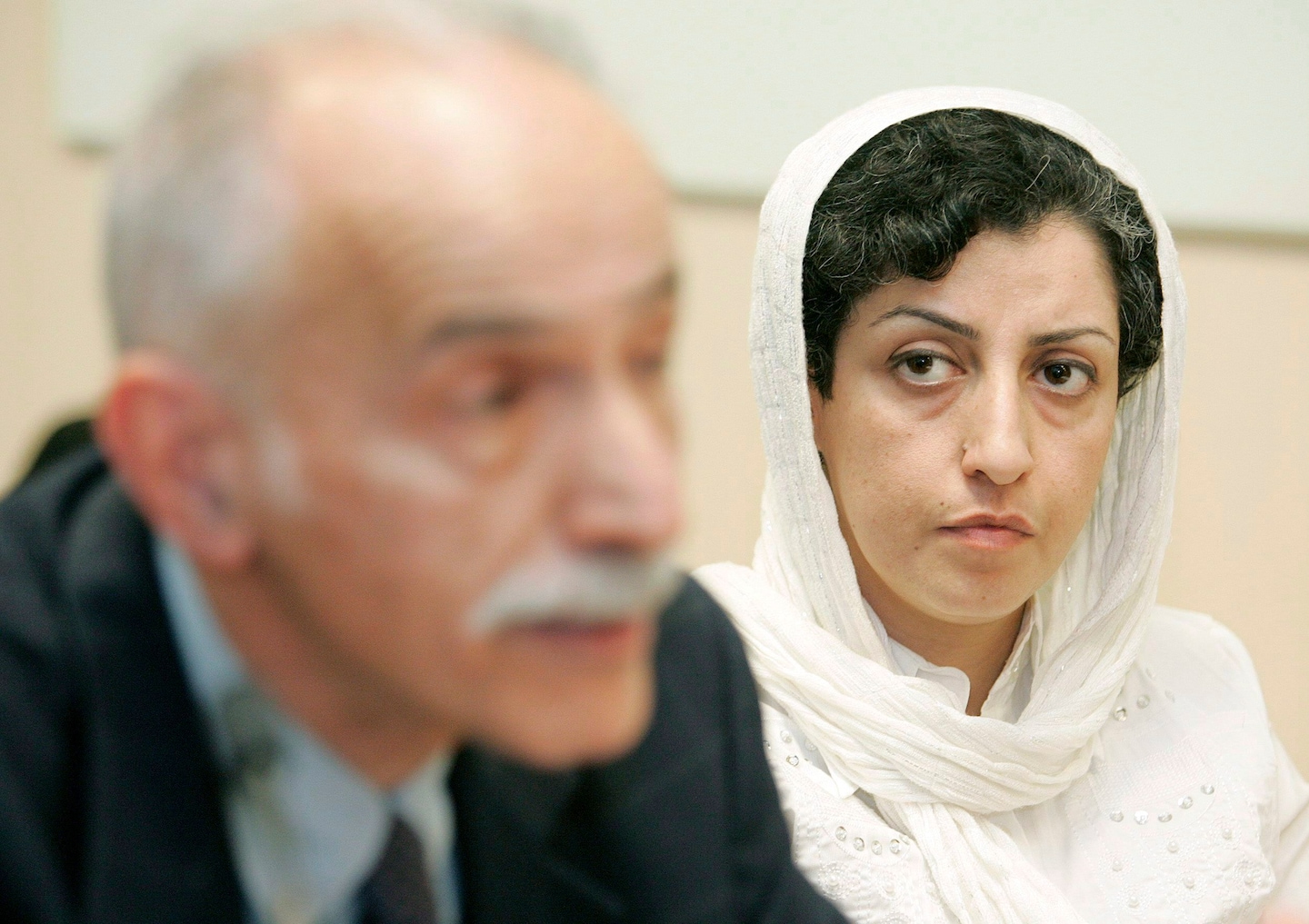Leading Iranian human rights advocate freed from prison amid fear of contracting coronavirus behind bars

Semiofficial Iranian news agencies reported her release after 8½ years behind bars. The officials cited by Iranian media did not elaborate on why her sentence was shortened.
Mohammadi was arrested in 2015 to serve the remainder of a six-year prison sentence handed down four years earlier. In 2016, while she was already incarcerated, Tehran’s Revolutionary Court found her guilty of forming and running an illegal group, as well as spreading propaganda and planning to harm Iran’s security. The charges, which she denied, were tied to her work against the death penalty.
Mohammadi was initially held in Tehran’s notorious Evin prison and transferred late last year to a prison in the northwestern city of Zanjan.
Covid-19 behind bars
The mother of two suffers from neurological and lung diseases, which put her at high risk of complications if infected with the novel coronavirus. In July, a group of U.N. human rights experts called for her release, citing reports that she was showing covid-19 symptoms.
“For those with underlying health conditions, such as Ms. Mohammadi, it may have life-or-death consequences,” they wrote. “The Iranian authorities must act now before it is too late.”
The letter said Mohammadi had lost consciousness in early July after her condition and symptoms worsened. They also accused authorities of denying her proper care and withholding the results of her coronavirus test.
Since February, Iran has been battling the region’s worst coronavirus outbreak. On Wednesday, the country recorded its highest official daily death toll yet, with 239 officially dead from the virus. The authoritarian theocracy has restricted news and independent reporting about covid-19.
Like elsewhere in the world, infections spreading through overcrowded prisons have remained a major concern. Some 85,000 inmates have been temporarily released in recent months through directives aimed at reducing prison capacities. Some have since been returned to jail, Reuters reported.
But inmates jailed for more than five years on national security charges — a category that includes many political prisoners who human rights groups say have been arbitrarily detained and unfairly sentenced — have been excluded from these measures, according to the United Nations.
Keeping this group locked up, U.N. High Commissioner for Human Rights Michelle Bachelet argued Tuesday, puts the health of political prisoners at even greater risk.
“I am disturbed to see how measures designed to mitigate the spread of covid-19 have been used in a discriminatory way against this specific group of prisoners,” she said in a statement.
Bachelet cited the case of Nasrin Sotoudeh, a prominent lawyer and defender of women’s rights, in jail on a combined 30-year prison sentence. She has a heart condition, and her health has further weakened after a prolonged hunger strike against her conditions.
In March, authorities temporarily released Nazanin Zaghari-Ratcliffe, a dual British-Iranian citizen, from Evin prison amid covid-19 concerns. She was arrested in 2016 while visiting family and sentenced to five years, allegedly for spying, which she denies. Now confined to her parent’s home, Zaghari-Ratcliffe is reportedly facing a new round of charges.
In June, Michael White, a U.S. Navy veteran held in Iran for nearly two years, was released as part of a prisoner exchange deal. White’s family warned in March that he was experiencing covid-19 symptoms. That month he was released on medical furlough to the Swiss Embassy in Tehran.
U.S. officials have also called on Iran to release Iranian American father and son Baquer and Siamak Namazi. The elder Namazi, 84, has been let out of jail for medical reasons, though he can’t leave the country. Siamak Namazi has been imprisoned since 2015.
“We have no nationality when it comes to such a pandemic and such a crisis,” Babak Namazi, Siamak’s brother, told NPR in March. “And what exactly will we be achieving by keeping people in harm’s way?”






